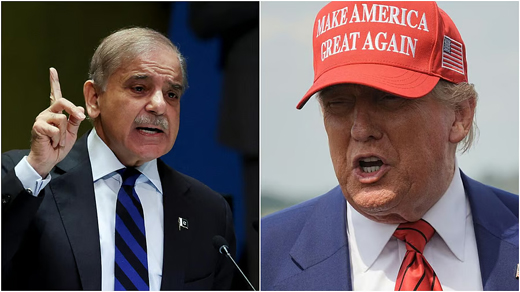Pakistan Nominates Trump for Nobel Peace Prize, Citing “Stellar Statesmanship”
In a surprising and politically charged move, the government of Pakistan has formally nominated former U.S. President Donald J. Trump for the 2025 Nobel Peace Prize, citing his “stellar statesmanship” and long-standing contributions to global peace and stability. The nomination was submitted by a senior member of Pakistan’s Senate Foreign Relations Committee and officially confirmed on June 21. It has since sparked considerable global discourse across diplomatic, media, and academic circles.
According to official statements from Pakistan’s Ministry of Foreign Affairs, Trump’s nomination is based on his diplomatic achievements during his 2016–2020 presidency, particularly his role in brokering the historic Abraham Accords between Israel and several Arab nations, his efforts to reduce tensions with North Korea, and his broader “peace-through-strength” approach in volatile regions such as South Asia and the Middle East. Pakistani officials argued that his unconventional yet impactful diplomacy created openings for dialogue where decades of traditional approaches had failed.
Foreign Minister Ishaq Dar praised Trump’s “non-traditional but results-driven leadership style,” saying it pushed adversaries to the negotiating table and opened new chapters in regional diplomacy, particularly in the Muslim world. The nomination also references Trump's backchannel influence in current U.S. efforts to mediate between Israel and Iran—a crisis that threatens regional stability. While Trump is no longer in office, Pakistan's diplomatic channels claim he has played a role through informal advisory networks, influencing strategic conversations that have de-escalated flashpoints in recent months.
The Nobel Committee has acknowledged receiving Pakistan’s submission, though it declined to comment further, in accordance with its standard confidentiality protocols regarding nominations. This is not Trump’s first Nobel nod—he received nominations in prior years from lawmakers in Norway and Japan—but it marks the first official nomination from a major Muslim country, signaling a potential diplomatic pivot in South Asia.
Reaction to the announcement has been mixed globally. Supporters of Trump, especially within conservative and Republican circles in the U.S., welcomed the nomination as long-overdue recognition for his administration’s international achievements. His 2024 campaign team responded swiftly, stating that the nomination proves “President Trump’s leadership transcended partisanship and ushered in real global results.”
Critics, however, argue that Trump's foreign policy legacy is far more complex. While he successfully forged peace deals between Israel and several Gulf states, he also withdrew from multilateral frameworks such as the Iran nuclear deal and the Paris Climate Accord. Some human rights groups expressed concern that honoring Trump could set a precedent that overlooks long-term peacebuilding in favor of short-term geopolitical deals.
Geopolitical analysts are divided over Pakistan’s motives. Some see the nomination as a calculated move to curry favor with Trump ahead of a possible 2024 re-election, thereby realigning Islamabad’s foreign policy stance closer to Washington after a recent tilt toward Beijing. Others interpret it as a symbolic message—both to the Biden administration and to regional powers—that Islamabad seeks a more assertive U.S. role in stabilizing South Asia and the Middle East.
The nomination also comes at a time of rising tensions in Pakistan’s neighborhood, including border skirmishes with India, escalating violence in Afghanistan, and renewed unrest in the Middle East. Some political commentators argue that nominating Trump is Pakistan's way of drawing attention to its vision for conflict resolution and multilateral dialogue, particularly through unorthodox but pragmatic channels.
Domestically, the move has generated heated debate in Pakistan. Opposition leaders questioned the wisdom of aligning the country’s foreign policy narrative with a polarizing international figure, while supporters within the ruling coalition described the nomination as a bold diplomatic gesture aimed at elevating Pakistan’s relevance on the world stage.
Whether or not the Nobel Committee seriously considers Trump’s candidacy remains to be seen, but the move has already achieved global headlines. It underscores how nations like Pakistan are navigating an increasingly multipolar world by appealing to past figures who, in their view, successfully disrupted geopolitical norms and achieved results.
Regardless of the outcome, the nomination places Donald Trump once again at the center of global conversation—this time not as a president or political candidate, but as a contender for one of the world’s most prestigious honors.
Here is the source link you requested for SEO purposes:
Original News Source:








